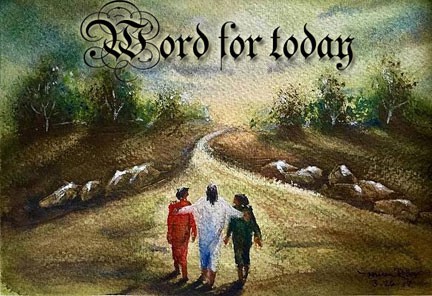Watch
Events
Articles
Market
More
Most Christian pastors are trying to build the roof but not bothering with a foundation.
Not many of you should become teachers, my brothers, for you know that we who teach will be judged with greater strictness.
James 3:1 ESV
And count the patience of our Lord as salvation, just as our beloved brother Paul also wrote to you according to the wisdom given him, 16 as he does in all his letters when he speaks in them of these matters. There are some things in them that are hard to understand, which the ignorant and unstable twist to their own destruction, as they do the other Scriptures. 17 You therefore, beloved, knowing this beforehand, take care that you are not carried away with the error of lawless people and lose your own stability.
2 Peter 3:15-17 ESV
https://rumble.com/v6w60qu-jus....t-read-leviticus-jus



Proverbs 16:31, “Gray hair is a crown of glory; it is attained along the path of righteousness.” Aging is not a spectator sport, participate is mandatory. The way we age could be compared to the way an athlete trains, successful athletes train very hard to perfect their skills. Everything we are taught and everything we do is part of our training for the aging process, living the way we are designed to live ensures we have the best chance for. long, joy filled, productive and successful life.



071525 / 19th day of the 4th month 5786
WORD FOR TODAY “is there grace in the OT?”: Eze 18:32 "For I have no pleasure in the death of anyone who dies," declares the Lord GOD. "Therefore, repent and live."
WISDOM FOR TODAY: Pro 27:19 As in water face reflects face, So the heart of man reflects man.
www.BGMCTV.org




Thought for Today: Tuesday July 15
From the beginning to the end of the Bible, there is the record of those whose prayers were answered – believers who turned the tide of history by prayer; who fervently prayed, and YHVH did answer! Elijah prayed and YHVH sent fire, Paul prayed and many, many people became believers in Asia minor and Europe. Peter prayed and Dorcas was raised to life, to have added years of service for Yeshua… Theologian John Owen once said: “He who prays as he ought, will endeavour to live as he prays.”



My site at http://blog.MessiahsLove.com It's just one example what you can do in WordPress. WordPress really has come a long way since when I began to use it decades ago. It's free and open source and I've been using it more these days. If you are interested in having your own website it can be set up quickly
http://HostMoves.com
I have a strong desire to help people get the gospel out. We can't do it alone but together we can use our gifts and talents to enable fellow believers.


